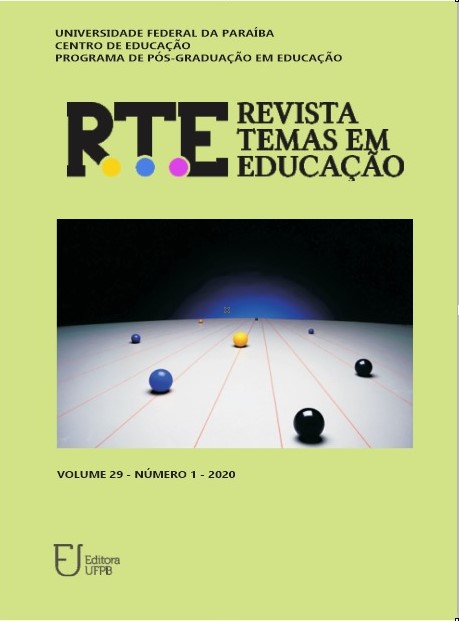DISTANCE EDUCATION IN PUBLIC SECONDARY SCHOOL: TEACHER`S PERCEPTION
DISTANCE EDUCATION IN PUBLIC SECONDARY SCHOOL: TEACHER`S PERCEPTION
DOI:
https://doi.org/10.22478/ufpb.2359-7003.2020v29n1.51753Keywords:
Distance Education, High school, TeachingAbstract
In order to know the perception of secondary school teachers on the Secondary School Reform with emphasis on the challenges and possibilities of Distance Education (DE), a qualitative research was developed, specifically a case study, with four teachers from two public schools in the municipality of Maranguape-CE, in the metropolitan region of Fortaleza, through semi-structured interviews, submitted to a content analysis. It was found that the teachers had a restricted vision of the above-mentionedreform and that, in the perception of the teachers, the schools and the students of the public school were not prepared for a DE, either because of the precariousness of the technological infrastructure (computer and internet) of the schools, or the profile of the face-to-face student, who unlike what is desired for distance learning, is disorganized and unmotivated for autonomous study. It is concluded that, for the participants of the study, Secondary Education in ED format will be detrimental to both students and teachers, since the former do not have the necessary conditions to manage their own learning, and the latter will see their teaching function discredited.
Downloads
Downloads
Published
How to Cite
Issue
Section
License
Authors who publish in this journal agree to the following terms:
. Authors retain the copyright and grant the journal the right to first publication, with the work simultaneously licensed under the Licença Creative Commons Attribution that allows the sharing of the work with acknowledgment of authorship and initial publication in this magazine. . Authors are authorized to assume additional contracts separately, for non-exclusive distribution of the version of the work published in this journal (eg, publishing in institutional repository or as a book chapter), with acknowledgment of authorship and initial publication in this journal.
. Authors are permitted and encouraged to publish and distribute their work online (eg in institutional repositories or on their personal page) at any point before or during the editorial process, as this can generate productive changes, as well as increase impact and citation of the published work (See O Efeito do Acesso Livre).



















